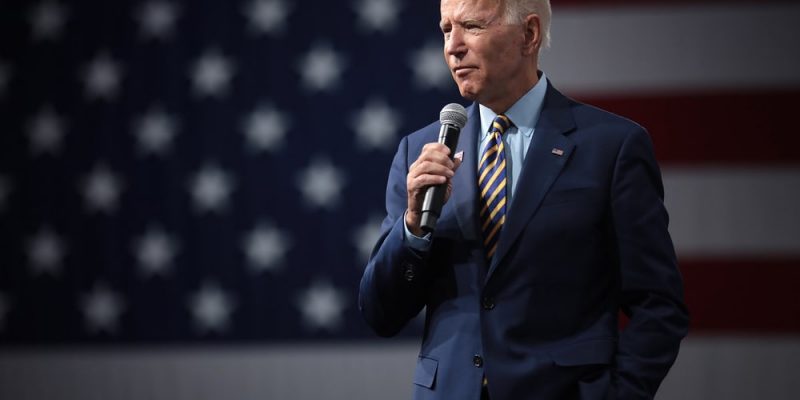With President Biden assuming office in January 2021, it’s likely that the U.S. immigration system will begin to see policy changes take place. The Biden administration has consistently voiced their pro-immigration stance, making it a top talking point during Biden’s campaign. This is a stark contrast to the immigration stance taken by the previous administration under Trump. President Biden has promised to introduce significant reform to United States Citizenship and Immigration Services (USCIS), and his new proposed legislation appears to be on track to fulfill promise.
Biden has proposed the U.S. Citizenship Act of 2021, and the White House has published a fact sheet that provides an overview of the changes that the bill would introduce. The White House stated that the new bill focuses on “keeping families together, growing our economy, responsibly managing the border with smart investments, addressing the root causes of migration from Central America, and ensuring that the United States remains a refuge for those fleeing persecution.” If passed, the U.S. Citizenship Act of 2021 would institute some of the largest changes that the U.S. immigration system has ever experienced.
How the EB-5 Program Could Be Affected
It’s no surprise that the EB-5 program is not specifically mentioned in the published fact sheet. Due to the controversial nature of the program, it is rare for politicians to publicly support the EB-5 program specifically. However, the reform that could take place as a result of the proposed bill could significantly benefit anyone that has made an EB5 investment.
Reducing EB-5 Visa Backlogs
Countries like China and Vietnam have been subject to lengthy EB-5 backlogs since 2014. As a result, EB-5 investors from these countries are stuck waiting several years to receive their EB-5 visa, even after their I-526 petition has been approved. Many investors from backlogged countries are left with no choice but to redeploy their EB5 investment capital, which introduces a new set of risks that could jeopardize their future in the United States. This new legislation could help clear the EB-5 backlogs, which would make the EB-5 process much quicker and more efficient, benefiting thousands of foreign nationals from backlogged countries.
Recapturing Unused Visas
Each fiscal year, there are a specific number of visas allotted to each immigration program. Because immigration was halted in 2020, there were several unused immigration visas that rolled over to other programs. Due to the large amount of unused family-based visas in FY2020, the EB-5 program has nearly double the usual number of available visas for FY2021. However, if this surplus of EB-5 visas is not issued in FY2021, they will roll over into a different program. The proposed bill could prevent the visas from rolling over, allowing the extra visas to be used for the EB-5 program to help reduce some of the massive backlogs.
Improving Processing Times
It is no secret that EB-5 investors are often subject to unusually long wait times. I-526 adjudication times can range anywhere from two to four years, and investors from backlogged countries like China sometimes wait longer than five years for their I-526 petition to be adjudicated. Unfortunately, EB-5 petition processing times are only getting worse. If President Biden’s proposed bill helps decrease wait times, it will help increase EB-5 interest from foreign nationals. An increase in EB-5 investments could be the perfect way to kickstart the U.S. economy after the devastating effects of the COVID-19 pandemic.
Removing Uniform Visa Caps
Just like all U.S. immigration programs, the EB-5 program has county-based visa caps that limit the number of available visas for each country. The problem is that the visa caps are not based on population or demand—instead, every country has the same visa cap. Because some countries, like China, have a much higher population and EB-5 demand than other countries, the visa caps lead to large backlogs. If the proposed legislation does away with country-based EB-5 visa caps, much of the EB-5 backlogs could be eliminated.
Exempting Eligible Family Members Visa Quotas
Lastly, the new legislation could remove eligible family members from taking up available EB-5 visa quotas. Each year, there are roughly 10,000 visas designated to the EB-5 program, but that does not mean that 10,000 EB-5 investors receive EB-5 visas each year. Most EB-5 investors include their spouse and eligible children on their applications, so only about 3,000 visas go to EB-5 investors, and the rest go to their eligible family members. If family members were exempt from the EB-5 visa quota, thousands more EB-5 investors could receive visas each year.
The Potential for Economic Growth
Anyone planning and EB-5 investment or working in the EB-5 industry should keep a close eye on the U.S. Citizenship Act of 2021. If the bill passes, it could lead to significant EB-5 reform, which would help eradicate the extensive EB-5 backlogs and speed up EB-5 petition processing times. This bill could allow the EB-5 program to flourish and fulfill its goal of boosting the U.S. economy and creating new jobs for U.S. workers.







